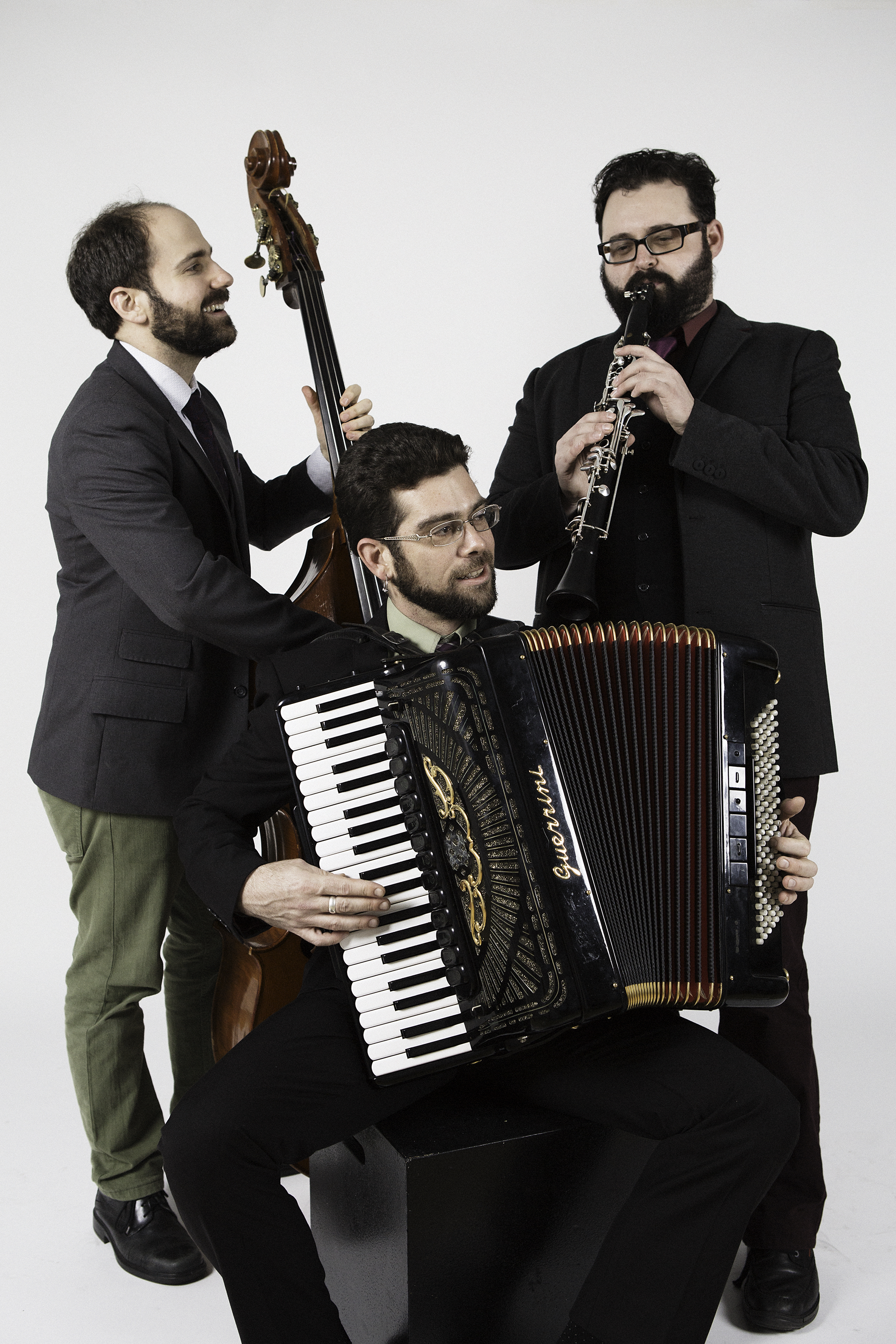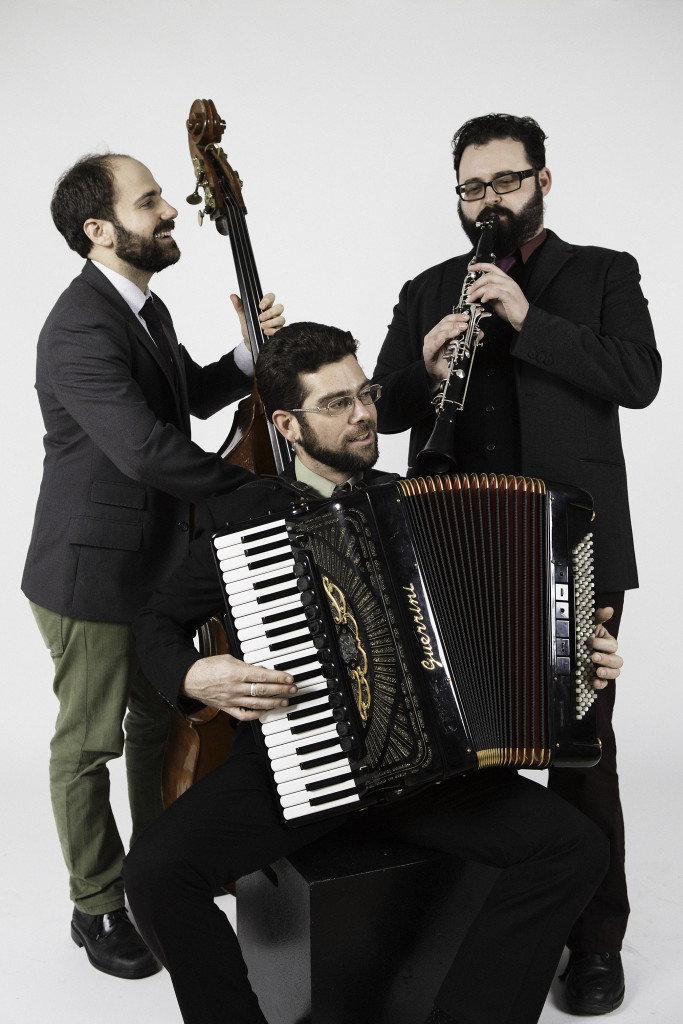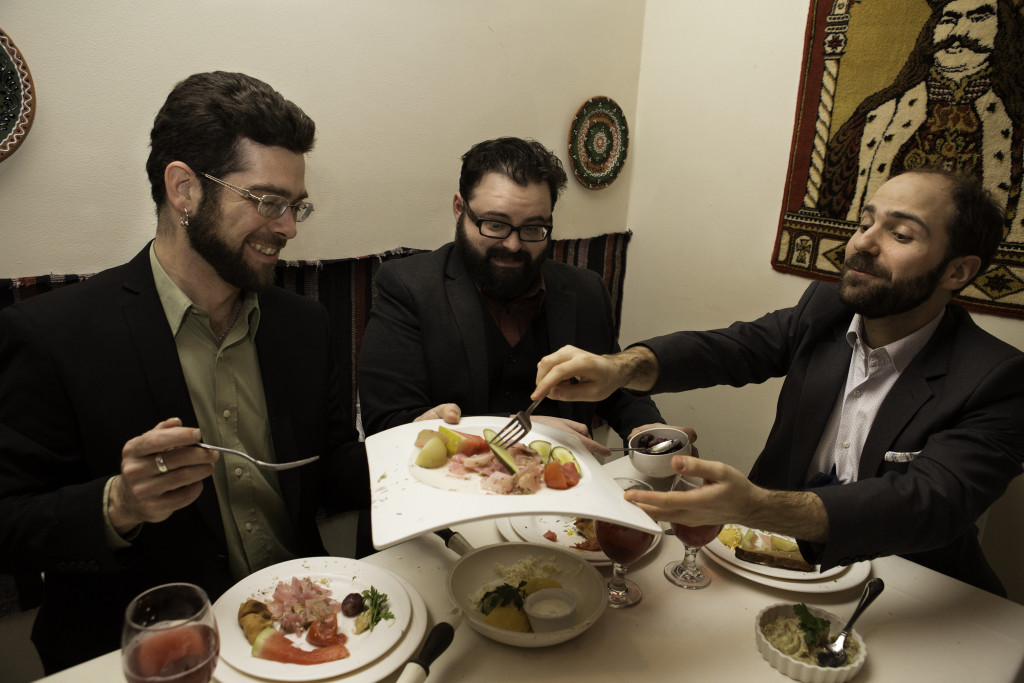By Myra Chanin
Now that I have figured out an easy way to get to the former Jewish Broadway (Second Avenue below 14th Street), I really appreciate Pangea – a wonderful supper club that supplies a stage for an unbelievable plethora of offbeat talent and more. And best of all, no matter who’s performing, the room always seems, packed with appropriately appreciative for whoever is singing/playing his/her/their hearts out on any occasion when I’ve been in the room.
The petite performance space is terrifically stylish – a stately Victorian living room with sexy Weimar Republic touches. Burgundy walls. dark green curtains lining the back of the performance platform; Two mid-century modern lamps brighten the two back corners; Hedged windows highlight a glorious garden view; Upside down Artimedes conehead sconces illuminate spooky etchings. It’s a very classy, comfortable space.
The menu offers something for everyone from delicious salmon cakes with roasted red pepper vinaigrette for nibblers to a solid brisket blend burger and crisp scrumptious slender hand cut fries. The bartenders prepare can’t-wait-to-sip-them elegant drinks. My companion spoke highly of his Vodka and tonic the morning after!
The entertainment is similarly varied and offers repeat weekly/monthly gigs to the diversely worthy including Mark Nadler, Eric Comstock, Kim David Smith and Tammy Faye Starlite. If you don’t know who any of the above are or what they do, shame on you. You should.
Pangea faces a God-only-knows-how-many-screens offbeat movie multiplex. The building was originally created to house the illustrious Yiddish Art Theater, founded by Maurice Schwartz, the Laurence Olivier of Yiddish theater. Schwartz had high intellectual, cultural and artistic aspirations and his Yiddish Art Theater toured the world with its rotating repertoire of 150 plays that ran the gamut from Sholem Aleichim to William Shakespeare.
I saw him play the Yiddish King Lear in Philadelphia near the end of his life. Schwartz himself had translated the play into Yiddish. Schwartz felt his Lear was an improvement on Shakespeare’s, who couldn’t appreciate the depth of a rejected father’s despair like a Jewish father could. I preferred the lower class cut-ups like Molly Picon, Menasha Skulnik and Aaron Lebedeff. Schwartz’s productions left me with a bias against any monicker that included the words Yiddish and Art, but I cast my prejudices aside for the Yiddish Art Trio, because I’d heard clarinetist Michael Winograd and Patrick Farrell on accordion in Frank London’s Klezmer Brass Allstars, a group I can’t get enough of, and I was willing to take a chance on Benjy Fox-Rosen who played double bass and handled the vocals.
On stage, Winograd asked, “Are you ready to have a good time?” “Yes!” the audience shouted. “Then you’ve come to the wrong place,” Farrell replied. Uh oh.
They played a happy klezmer tune before moving on to Aybick — Yiddish for always — which was appropriately named and seemed to last forever. Its intriguingly morose orchestration reminded me of the chords used in Kurt Weil’s Threepenny Opera. They were presenting A*R*T and I wanted low class lebedick und freylach! – lively and happy! Instead I got several lullabies and was reprimanded for not being familiar with a Bobby Silver Jewish Orchestra tune. It was OK but Dave Tarras, who they never mentioned, was better. Also, Farrell played on a giant accordion which overwhelmed and dragged down every melody the group played. I’d liked Farrell better when he played a smaller accordion with the Klezmer Brass All Stars. I also felt that the group didn’t love the songs they played and they were condescending when they spoke about the material. They really didn’t give what I considered an adequate explanation about a Yiddish folk song extolling the beauty of a Hassidic Rabbitzin – the rabbi’s wife, which was actually a very sexy song about how every one of the Rabbi’s followers lusted after a beauty just like his – who could probably cook and clean, but, thank God, didn’t have to.
I was the mutant in the crowd. Everybody else in the audience loved the show. Clapped and hooted. Demanded encores. Bought CD’s. As I reflect, however, the lively songs were lively enough, and the trio played well. I was just in the mood for something different which was my, not their, problem.




















